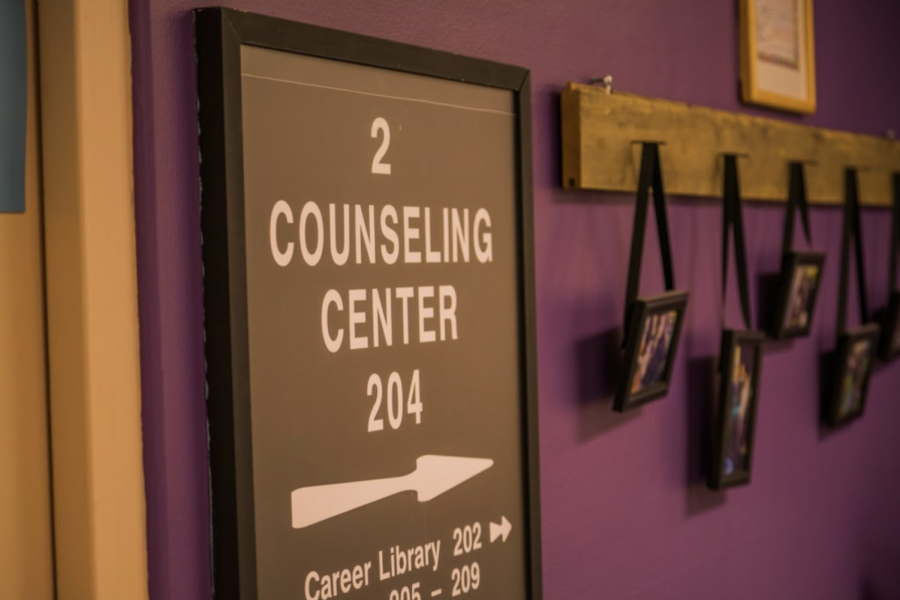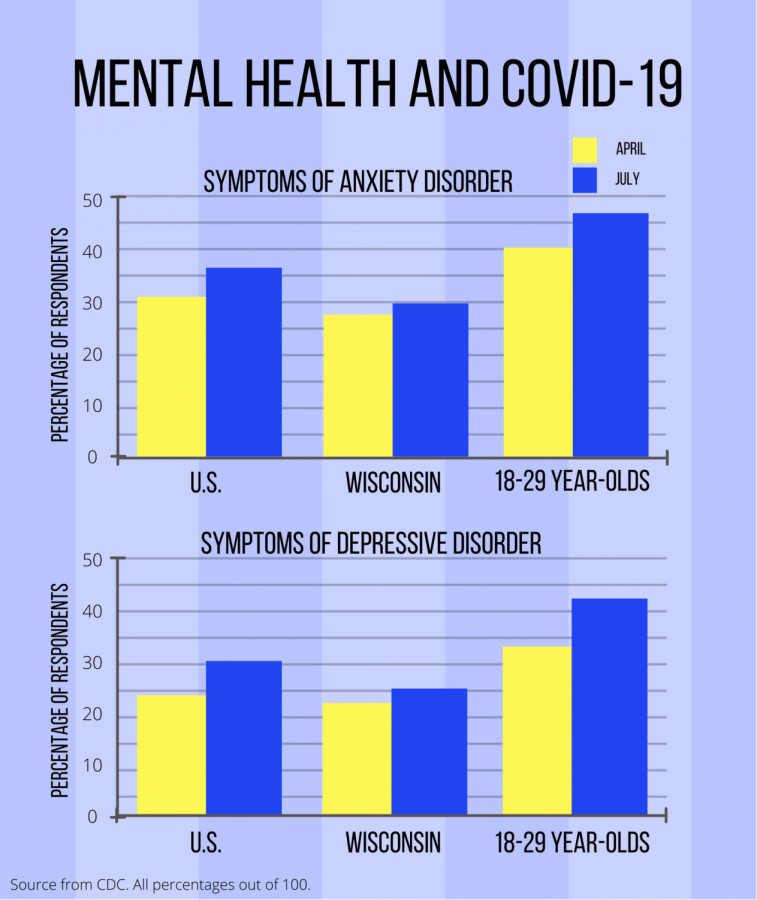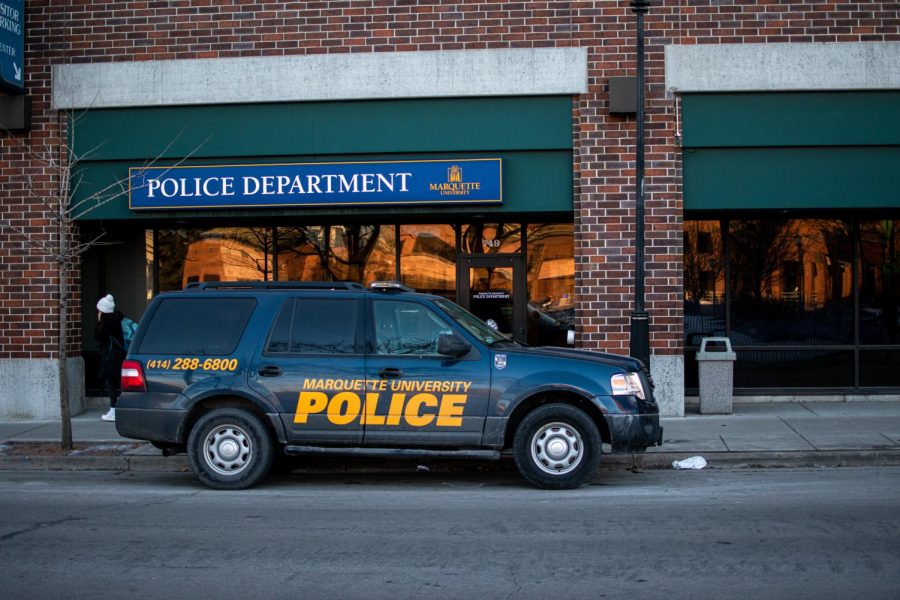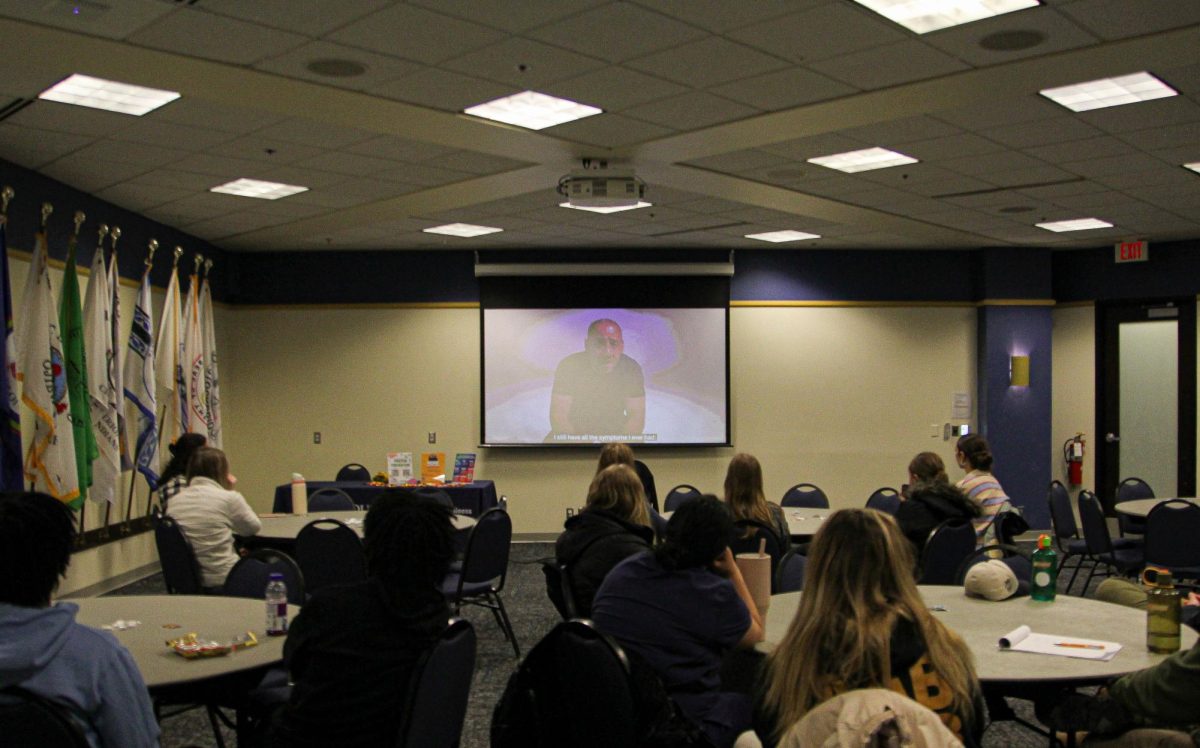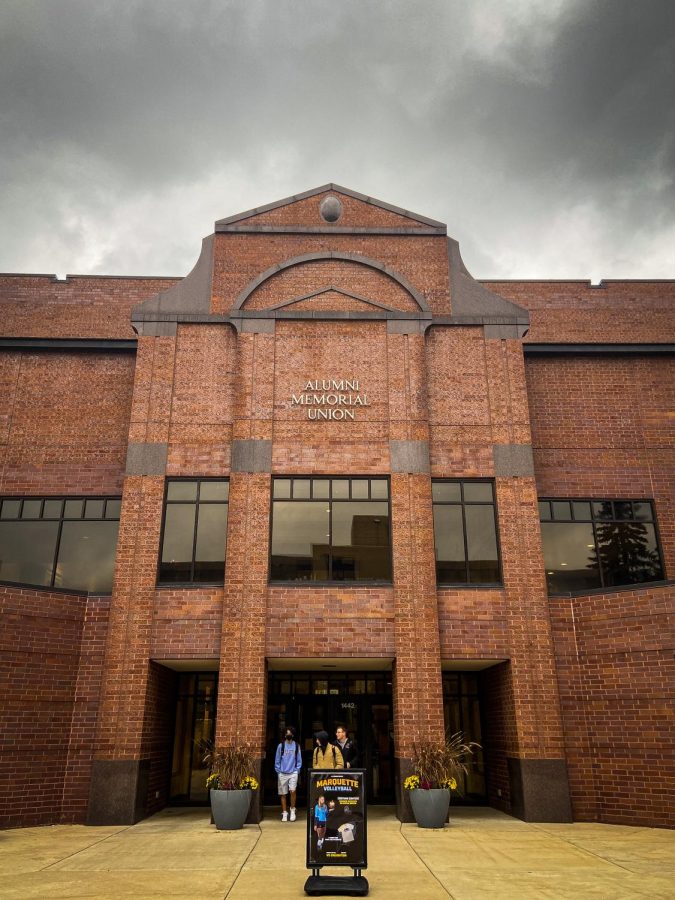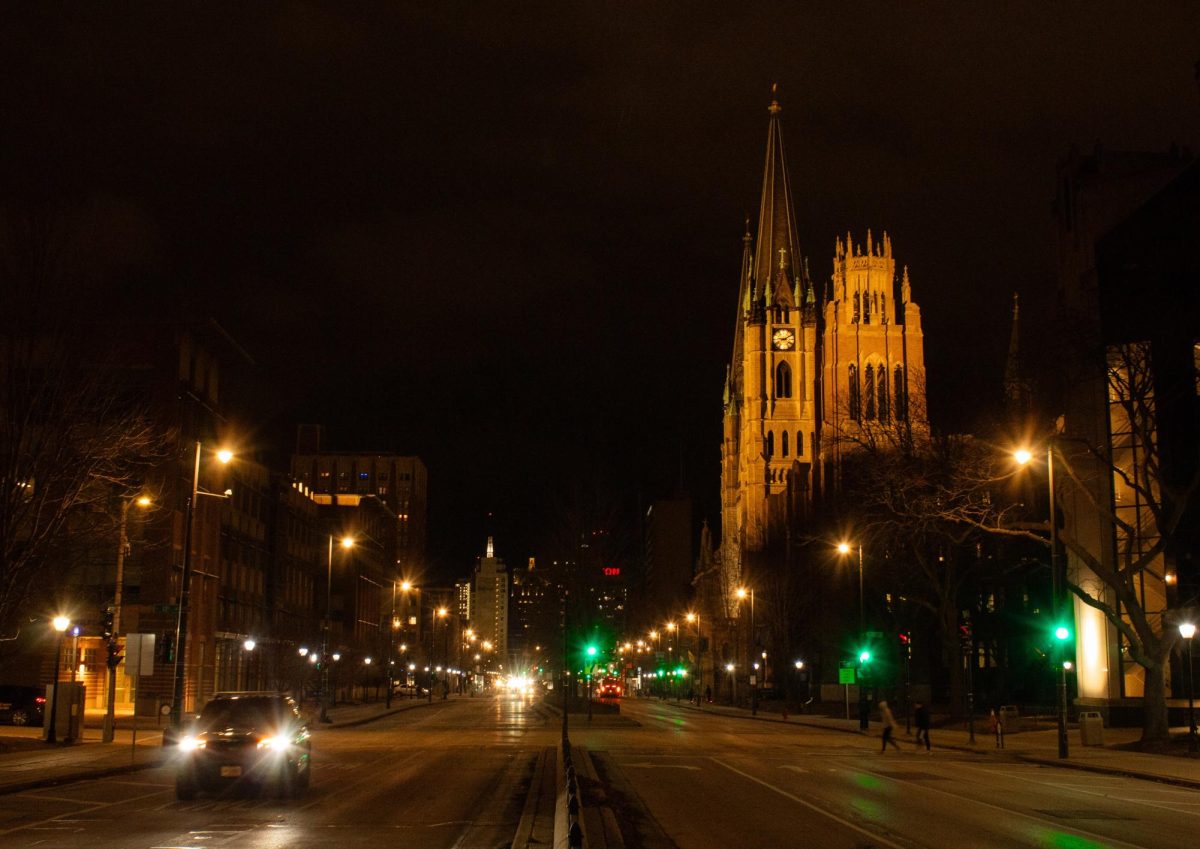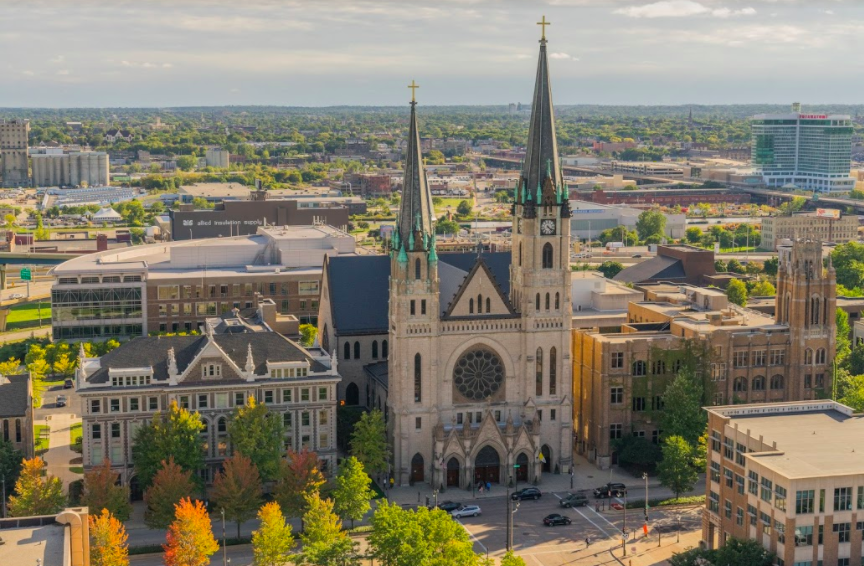The Marquette Counseling Center employs a short-term therapy model that some students claim prematurely stopped their treatment.
The center offers individual and group counseling for mental health issues such as anxiety, depression and eating disorders. It is located in Holthusen Hall on Wisconsin Avenue, and full-time students are eligible to make free appointments in person or by phone.
Two Marquette students who spoke with the Marquette Wire said they were unable to schedule sessions after one year of treatment. When initially asked about the one-year limit, licensed psychologist Deborah Contreras-Tadych, a coordinator for underrepresented students at the Counseling Center, did not deny the limit and explained the center’s short-term therapy model.
Contreras-Tadych said the model lessens students on a waitlist, whose treatment can be deferred until counselors become available. Contreras-Tadych added that students with certain conditions might need to seek additional treatment from a center with “a larger team, more frequent visits or more specialized care than our center can provide.”
“As a result, the Counseling Center is not the most appropriate clinical fit for those seeking treatment in certain instances,” she said. This may include severe trauma, severe eating disorders or active addictions.
In a follow-up email three days later, Contreras-Tadych said students are not limited to a specific length of treatment or sessions.
“We do not have a year limit for services or a specific number of sessions that we limit students to,” Contreras-Tadych said in an email. “Students generally come for about a semester’s worth of individual therapy and can do another semester or more of group therapy. At times, students may return for some additional individual sessions if it is a different issue that would likely be resolved with a few meetings.”
One-on-one therapy at the center involves identifying therapy concerns, developing a plan to resolve them and determining the approximate length of time the student will be engaging in services.
Gina Marchetti, a sophomore in the College of Arts & Sciences, said she started going to the Counseling Center the first semester of her first year.
“It went really well, and I liked my therapist,” Marchetti said. “Even though I went there for a year, it definitely wasn’t enough time for me to open up to someone. When it was our last appointment, I was really upset because it felt like I was just beginning to open up.”
Marchetti said she was confused why the center would stop student therapy sessions. She said her parents were angry, claiming services at the Counseling Center should not be limited for students paying a full-time tuition.
“It doesn’t really make any sense,” she said.
Brittney Sockwell, a sophomore in the College of Arts & Sciences, said she was similarly stopped from making appointments after one year.
“I had major concerns because I didn’t hear about it until my last session,” Sockwell said. “I wish they would’ve told me when I booked my first session.”
Since many students are not from the Milwaukee area, Sockwell said it’s easier for them to visit a therapist on campus.
“Having that taken away is just another burden,” she said. “This type of policy is just another let down or barrier. You begin attending therapy to work out issues and situations in your life. For some, a session or two will do. But some issues need to be revisited, and if Marquette’s Counseling Center can’t be a part of the entire healing process, they need to be upfront about how much they can do.”
Sockwell said she is a victim of sexual assault, adding that “therapy is an ongoing process.”
“I was there after the incident up to a year later. I don’t want to go to a new therapist when there is one that already knows my history,” Sockwell said. “The thought of catching someone up is enough to make me not seek help. I’m tired of reliving it each time I tell the story. It’s painful.”
Contreras-Tadych said university counseling centers across the nation are struggling to meet access needs.
According to the American Psychological Association in 2017, the student-to-counseling staff ratio is 1,737-1 at colleges and universities.
“The upside of that is that students are more willing than ever to reach out for help, which is a good thing,” she said in an email. “The downside is that students may be seen for less visits, or less frequent visits, and may be referred out if the need is greater than what we are able to provide.”
Contreras-Tadych said the Counseling Center is continuously looking for ways to resolve these concerns.
“At the same time, we have great relationships with community partners who are better equipped than the Counseling Center is to handle certain student concerns,” Contreras-Tadych said in an email.
Adisa Haznadar, outreach coordinator and psychologist at the Counseling Center, listed a number of places with which the center works, including the Sixteenth Street Community Health Center, the training clinic at Marquette, Rogers Memorial Hospital, Aurora Psychiatric Hospital and a number of private practices.
Contreras-Tadych said after students’ time at the Marquette Counseling Center, they are referred to outside resources. This is done for several reasons, she said.
“One reason would be if they need a higher level of care than what we are able to offer in our center — for example, inpatient services, or a more intensive outpatient or partial hospitalization program,” Contreras-Tadych said in an email. “We also refer to specialists for specific concerns; for example, eating disorder services, substance abuse programs or formal assessments for ADHD. We also may refer students that likely need longer term services than what we are able to provide, perhaps for severe trauma or for personality issues, among other things.”
Sockwell said the Counseling Center helped her search for an outside therapist. She was also referred to group therapy on campus.
However, Marchetti said she was not referred elsewhere. She said not being able to utilize the Counseling Center is an issue for those who may not be able to afford other services.
If a student can’t afford outside therapy or does not have insurance, Contreras-Tadych said the Counseling Center refers them to places with sliding cost scales or that provide low-cost options. She said there are multiple training clinics attached to professional schools that offer free or low-cost services.
“We work with the students and their particular circumstances to find the best solutions available,” Contreras-Tadych said in an email.
When it comes to group therapy, Contreras-Tadych said students are able to attend group therapy sessions for multiple semesters for things like social anxiety and sobriety. Group counseling often involves six to eight students and one to two therapists.
The Counseling Center is always open to those in crisis, evaluating the situation and suggesting a course of action, she said. The center may reconnect a student to their current treatment provider or recommend a group to attend.
This story was written by Alexa Jurado. She can be reached at alexa.jurado@marquette.edu.

